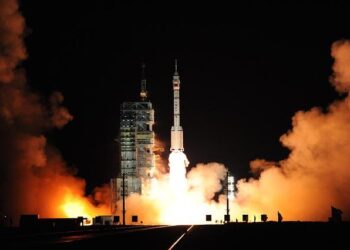Commemorating 80 Years of VE Day: A Look at Security and Solidarity in Europe
This year marks the 80th anniversary of Victory in Europe (VE) Day, a pivotal occasion that honors the sacrifices made during World War II while also drawing attention to today’s pressing security issues. As nations across the continent reflect on this historic event, they are increasingly aware of the evolving geopolitical challenges that threaten both stability and democratic ideals.The rise of authoritarianism and escalating tensions necessitate a united front among European countries to protect freedom and maintain peace.
Reflecting on History Amidst Current Security Challenges
The commemoration of VE Day serves as a powerful reminder of Europe’s historical struggles while illuminating present-day security concerns. The observances are tinged with a somber acknowledgment that contemporary threats‚ÄĒranging from military confrontations to cyberattacks‚ÄĒmirror past conflicts. As leaders convene to pay tribute, they engage in crucial dialogues aimed at fostering collaboration and ensuring enduring peace throughout the region.
Several critical factors currently influence discussions surrounding security:
- Rise of Autocratic Regimes: An unsettling increase in authoritarian governments is eroding democratic values across various nations.
- Hybrid Warfare Tactics: The use of misinformation campaigns alongside cyber operations has become commonplace as instruments for statecraft.
- Evolving Alliances: Conventional partnerships are being tested as new coalitions form, particularly regarding NATO’s unity and EU solidarity.
| Main Security Threats | Implications for Europe |
|---|---|
| Increased Militarization | Tensions rising in Eastern European territories |
The reflections inspired by VE Day coincide with an urgent appeal for renewed commitments towards collective security. Europe stands at a crucial crossroads where lessons from history must inform future strategies designed to tackle these urgent challenges effectively.
Celebrating Peace While Addressing Modern Security Issues
The resilience demonstrated during World War II starkly contrasts with today’s precarious security landscape across Europe. Current challenges such as digital threats, political instability, and shifting global power dynamics require comprehensive approaches that honor historical lessons while adapting to contemporary realities. Nations must prioritize diplomatic engagement alongside bolstering defense mechanisms to navigate these complexities successfully.
This commemoration transcends mere recognition of past victories; it acts as a rallying cry for proactive measures today. A balanced strategy combining military readiness with humanitarian efforts is essential for sustaining stability throughout the continent. Key focus areas include:
- NATO Enhancement: Strengthening joint exercises along with increased financial contributions from member states.
- Coping with Hybrid Threats: Developing advanced cybersecurity capabilities tailored specifically to counter emerging risks.
- Nurturing Social Cohesion: Initiatives aimed at combating domestic extremism through community engagement and educational programs.
| Security Challenge | Response Strategy | |||||||||||
|---|---|---|---|---|---|---|---|---|---|---|---|---|
| Cybersecurity Vulnerabilities | Strengthen cyber defense protocols | |||||||||||
| Political Instability | Initiate diplomatic initiatives | |||||||||||
| Militarized Conflicts | Increase NATO presence | |||||||||||
| Public Misinformation | Implement awareness campaigns Strategic Measures for Strengthening European Defense CooperationAcknowledging modern challenges‚ÄĒfrom geopolitical conflicts to cybersecurity threats‚ÄĒrequires enhanced collaboration among European nations regarding defense strategies. A multifaceted approach can significantly strengthen unity within Europe through several key actions:
|
















